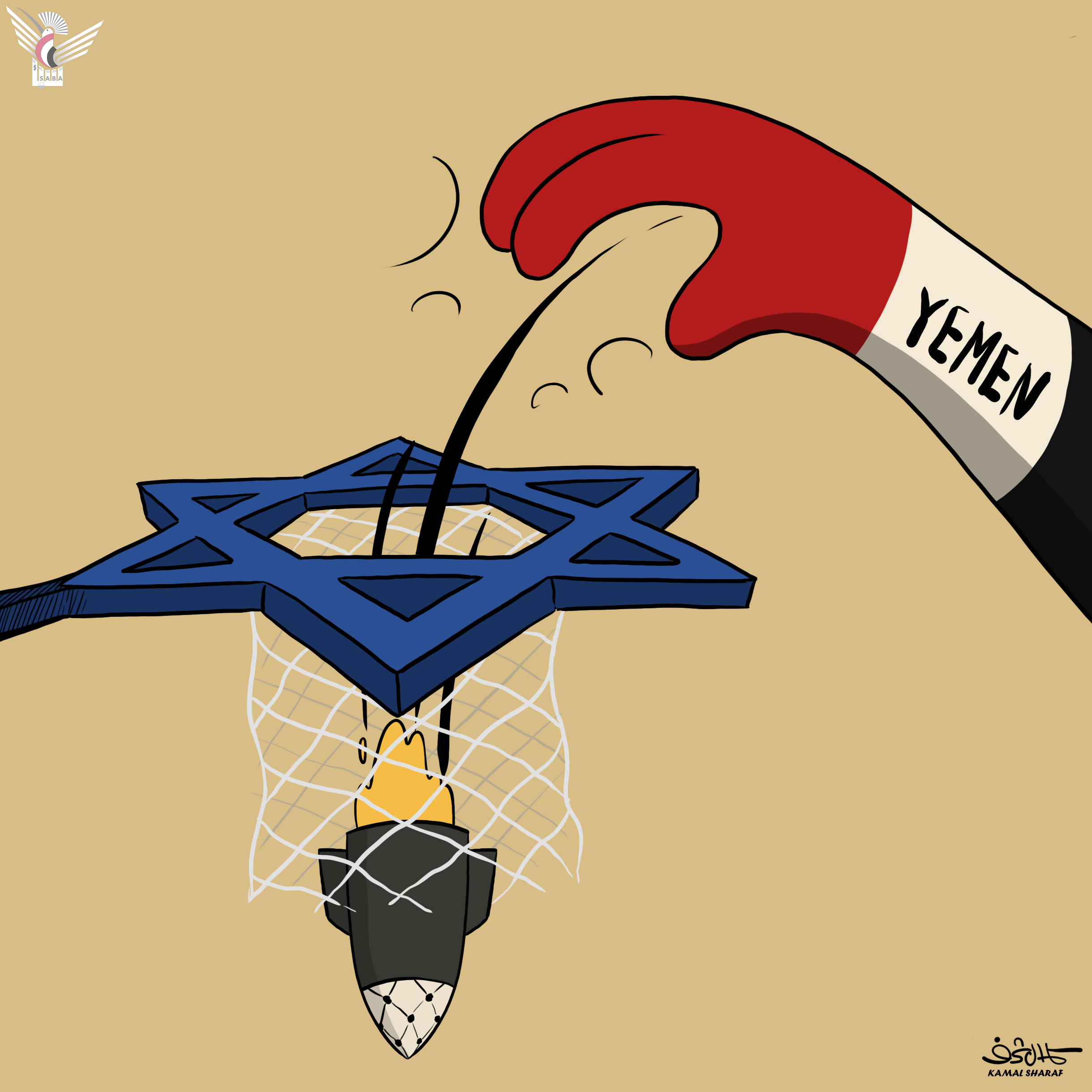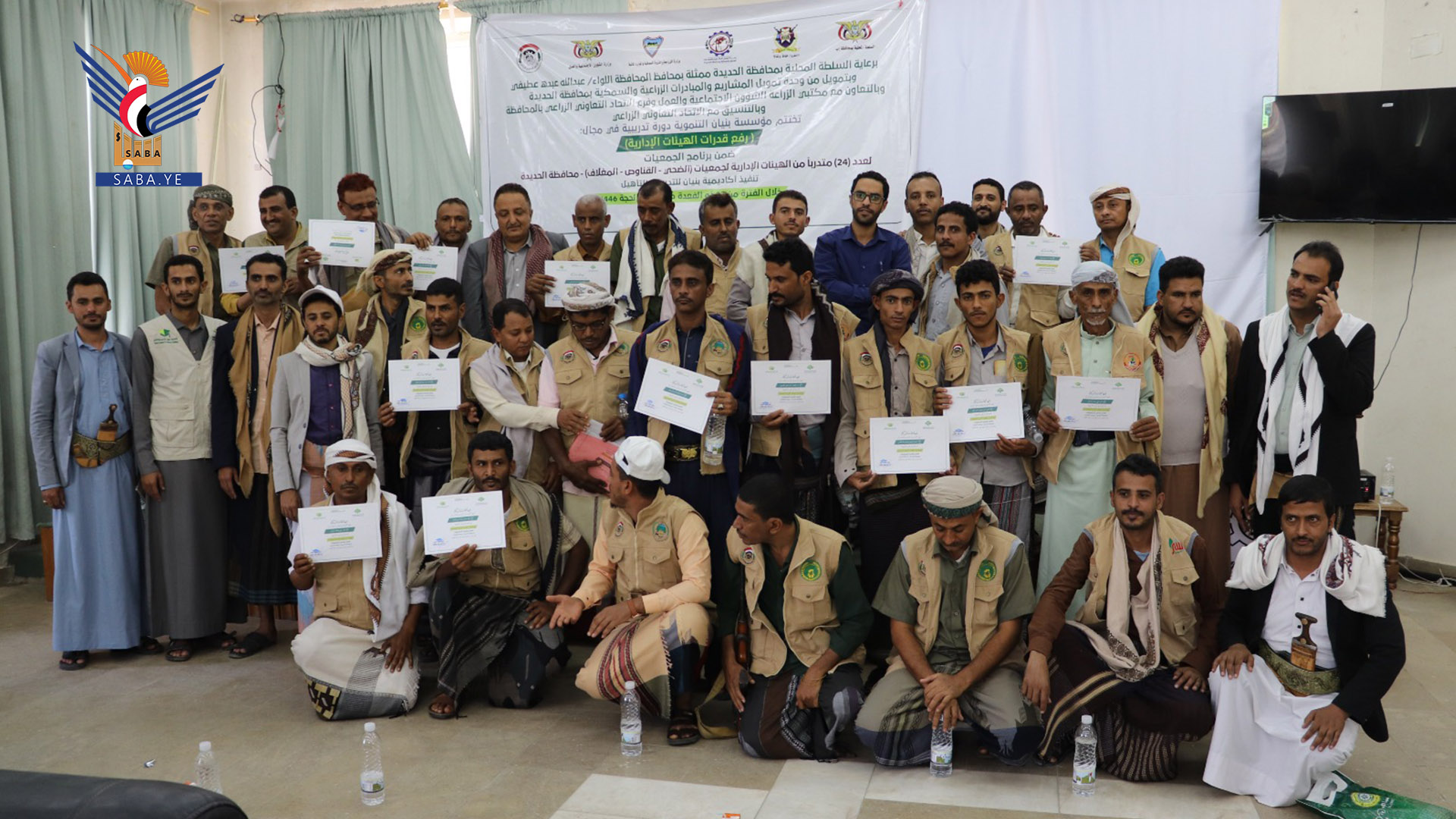Sana’a - Saba:
A specialized training course in cooperative work, planning, and activating organizational structures for the administrative bodies of the cooperative societies of Al-Mughlaf, Al-Qanawas, and Al-Dahi in Hodeida province concluded on Monday in Sana’a.
The 15-day course, implemented by the Bunyan Training and Qualification Academy, aimed to equip 24 participants from the administrative bodies of the cooperatives with knowledge in cooperative work, developmental planning, organizational structuring, and launching community initiatives. This contributes to enhancing the efficiency of the societies and enabling them to better serve the community.
The course was funded by the Project and Initiative Financing Unit, in cooperation with the Agriculture Sector and the Office of Social Affairs and Labor, in coordination with the Agricultural Cooperative Union and the Bunyan Development Foundation.
During the closing ceremony, the head of the Agricultural Cooperative Union, Mubarak Al-Qaili, stressed the importance of translating the course outcomes into reality. He explained that successful cooperative work is based on a developmental methodology guided by faith and community participation, requiring a high level of responsibility and integrity in performance.
He described cooperative societies as a bridge between the community and official entities, serving as a societal framework for implementing community initiatives and economic projects. This necessitates maintaining an accurate database of farmers and their activities to ensure plans are based on correct information.
Al-Qaili emphasized that the success of cooperative societies depends on organized work, activating their various units, distributing tasks, maintaining proper documentation, preparing transparent final accounts, and conducting field visits while implementing programs according to clear timelines to achieve sustainable development.
Meanwhile, a speech on behalf of the participants expressed appreciation for the organizing and supporting entities, affirming their determination to apply the acquired knowledge and skills in practice and contribute to improving the institutional performance of their societies, positively impacting farmers and the community at large.
The course is part of training programs implemented by the Agricultural Cooperative Union in coordination with partners, within a comprehensive national vision to build the capacities of cooperative societies’ administrative bodies and empower them to fulfill their developmental and economic roles in reducing import costs and achieving self-sufficiency.

| more of (Local) |




